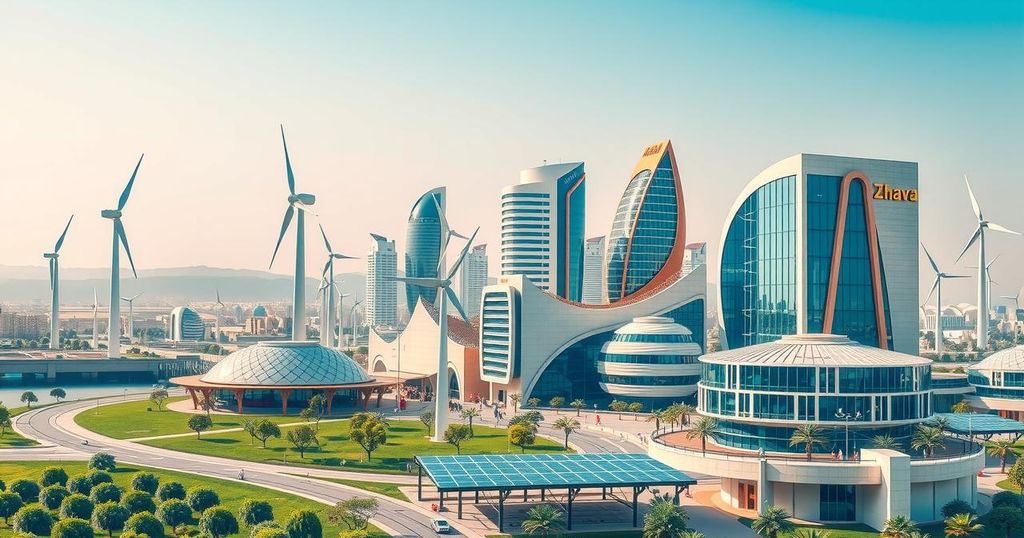Cars
ALKHAREIF, ASIA, BENTLEY, BENTLEY UNIVERSITY, CONSTRUCTION INDUSTRY, E. LABRENT CHRITE, EMPOWERMENT BUDGET INITIATIVE, INTERNATIONAL MONETARY AND FINANCIAL COMMITTEE, INTERNATIONAL MONETARY FUND, KINGDOM OF SAUDI ARABIA, LABRENT CHRITE, LACAVA, MIDDLE EAST, MOHAMMED ALKHAREIF, MOHAMMED BIN SALMAN, NORTH AFRICA, OIL INDUSTRY, RY, RYADH BIN MOHAMMED ALKHAREIF, SAUDI ARABIA, SAUDI VISION 2030, SUSTAINABLE DEVELOPMENT, VISION 2030, WORKFORCE
Marcus Chen
0 Comments
Saudi Arabia’s Economic Diversification: Insights from Vision 2030
Saudi Arabia is focusing on diversifying its economy away from oil reliance through the Vision 2030 initiative. Key areas of growth include tourism, renewable energy, and enhancing women’s workforce participation. Strong international partnerships, especially with the U.S., are crucial for future trade and cooperation success.
Saudi Arabia, as the largest economy in the Middle East and a major oil producer, is actively working to diversify its economy to reduce reliance on oil. On February 26, during the President’s Speaker Series at Bentley University, Ryadh bin Mohammed Alkhareif, deputy chair of the International Monetary and Financial Committee at the International Monetary Fund (IMF), discussed the nation’s global economic strategies, particularly its Vision 2030 initiative led by Crown Prince Mohammed bin Salman.
Alkhareif emphasized that while economic diversification is a priority, the oil sector remains integral to Saudi Arabia’s strategy. He stated, “When you look at economic diversification, historically the Saudi economy relied heavily on one source. Now we have put a lot of emphasis to diversify the economy towards non-oil activities.” This strategic shift incorporates leveraging oil sector capabilities to support global energy demands, recognizing the continued importance of fossil fuels.
Under Vision 2030, the Kingdom has made notable progress in diversifying into sectors such as tourism, entertainment, and renewable energy. A key initiative in promoting economic diversification is the Women Empowerment Budget Initiative, which has increased women’s participation in the workforce to around 36%, surpassing the 30% target. Alkhareif acknowledged that social spending has been prioritized, improving healthcare and education access, positioning Saudi Arabia’s social spending favorably compared to other G20 nations.
Alkhareif also conveyed confidence in strengthening relationships with the United States and other global partners. He remarked, “The role between the Kingdom of Saudi Arabia and the United States has been historical, strategic and mutually beneficial to both countries and to the global economy.” He highlighted ongoing cooperation across various sectors, including energy, education, and business, asserting, “We have achieved significant milestones,” and anticipates further opportunities in trade and financial collaboration which will yield positive outcomes.
President Chrite’s Speaker Series provides a platform for notable figures to share their insights with the Bentley community, with past speakers including notable leaders such as Paul Knopp (U.S. chair and CEO at KPMG) and Rich Gotham (president of the Boston Celtics).
In summary, Saudi Arabia is undergoing significant economic diversification aimed at reducing its reliance on oil, a process guided by the Vision 2030 initiative. Key sectors are being developed, including tourism and renewable energy, coupled with enhanced social spending and women’s workforce participation. The Kingdom maintains strong ties with global partners, notably the United States, fostering trade and cooperation for mutual benefits. The efforts reflect a broader movement towards a sustainable and diversified economic model.
Original Source: www.bentley.edu




Post Comment